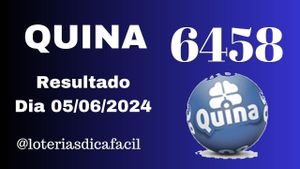With less than two weeks left until the German Federal Election, the political arena is heating up as major party figures prepare for their final confrontations. Chancellor Olaf Scholz from the Social Democratic Party (SPD) and Friedrich Merz, the candidate for the Christian Democratic Union (CDU), will face off in the first televised debate this Sunday, with many watching closely to see how each will tackle pressing national issues.
Just days before this pivotal face-off, several high-profile politicians from other parties engaged in a heated televised discussion, addressing hot-button topics like migration and economy. The panel, hosted by ZDF, featured six politicians—five men and one woman—who passionately debated the nation’s most pressing matters. Jan van Aken, leader of The Left, sparked tensions by admonishing Tino Chrupalla, head of the Alternative for Germany (AfD), exclaiming, "Why don’t you keep your right-wing extremism at bay? Now it’s my turn!" Chrupalla grinned back, seemingly unbothered, and noted, "This kind of response merely serves as election advertising for us, showcasing how he behaves," referring to the comments exchanged during the discussion.
During this prelude to the first major debates, the atmosphere was charged. The dialogue quickly became contentious, particularly between the FDP leader Christian Lindner and Felix Banaszak of the Greens, illustrating the growing divide among Germany's political factions. Lindner advocated for "cross-party collaboration" to effectively counteract the rising influence of the AfD, proposing to merge migration policies from allied parties for a united approach. He declared, "You won’t diminish the AfD’s impact by just holding candlelight vigils. To shrink their appeal, we need to address the core issues they have exploited."
Banaszak, on the other hand, called for nuanced discussions on migration, emphasizing the importance of addressing broader societal narratives rather than adopting the AfD's perspective which, he argued, fuels divisions. He pointed out the pressing concerns of those from migration backgrounds, many of whom are now questioning their place and security within Germany.
Adding to the mix was Alexander Dobrindt, the leader of the Bavarian Christian Social Union (CSU), who echoed concerns about the overwhelming strain on local municipalities due to irregular migration. He highlighted burgeoning grievances among citizens—asserting the necessity for decisive action to alleviate their anxieties about immigration.
The ideological clashes continued as the debate moved forward, with van Aken insisting the turmoil was, at its core, diverting attention from systemic issues caused by austerity measures affecting communities. Chrupalla weighed in with his party's demands for repatriation agreements with Syria and Afghanistan, underscoring his call for stricter immigration controls.
Wagenknecht, representing the BSW party, lamented the urgency of addressing migration, warning against allowing public sentiment to shift dramatically due to perceived insecurity. She remarked, "The data on migration numbers are easily dismissed by those unaffected by the changes; it's imperative we recognize the tangible impact these policies have on everyday citizens."
The events leading up to the first debate are compounded by recent survey results indicating substantial fluctuations within the electorate. According to the latest ARD Deutschlandtrend, both the CDU/CSU and AfD have seen improvements, standing at 31% and 21% respectively. Interestingly, these shifts occurred even after controversial votes on tightening migration policies, prompting observers to wonder about the effectiveness of the political strategies employed by different parties.
Then, on February 16, the traditional format of the TV debate will be replaced with what is being dubbed as the "Quadrell," featuring Merz, Scholz, Alice Weidel from the AfD, and Robert Habeck from the Greens, showcasing perspectives from Germany’s top political contenders directly before the election. RTL’s decision to implement this four-way confrontation signals the dynamic changes and reactions within the current electoral campaign, moving away from the conventional one-on-one debates.
Olaf Scholz has also expressed interest in the new format, highlighting its potential to clarify the distinct differences between parties. "A direct encounter with Alice Weidel is my intent," Merz noted, emphasizing the significant distinctions between the CDU and AfD platforms. The format promises to inject another layer of complexity to the election debate process, especially after previous criticisms of the typical TV debate productions which led to more theatrical than substantive discussions.
The urgency of the upcoming election is underscored by these recent developments, with prominent parties scrambling to consolidate voter support during these final weeks. From public debates to internal party strategies, every move will be closely analyzed as Germany prepares for what could be one of the most consequential elections to date. Meanwhile, as candidates gear up for confrontations, they must navigate not only the pressing issues at hand but also the political narratives shaping public opinion.



